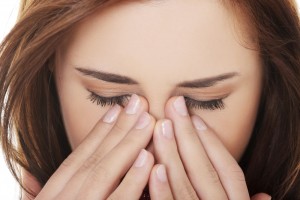Dry Eyes

Dry eye is a chronic condition in which there is either an insufficient amount of tears to lubricate the eye or the quality of the tears is poor. Tears are necessary for preserving the health of the eye and maintaining clear vision.
People with dry eye often experience irritated, gritty, scratchy, or burning eyes, a feeling of something in their eyes, excess watering, and/or blurred vision. Progressively advanced dry eye may cause damage to the surface of the eye, inflammation, or impaired vision.
The many causes of dry eye include:
- Age– dry eye is a natural part of the aging process
- Gender– females are more likely to suffer from dry eye due to hormonal changes, especially after menopause.
- Medical Conditions– Dry eye is more likely to occur in people with rheumatoid arthritis, diabetes, Lupus, or thyroid problems. Inflammation of the eyelids (blepharitis) can cause dryness as well.
- Medications– General medication classes including anti-histamines, antidepressants, hypertension, decongestants, birth control, and many others can cause dry eye.
- Environmental Conditions– Wind, sun, indoor air conditioning or heating systems, and allergies can also contribute.
- Other Factors– Wearing contact lenses for longer than intended or sleeping with a fan on at night can cause dry eye.
So how do we treat dry eye?
There are many different ways to combat dry eyes. Depending on the root cause of each case, a specific treatment option will be tailored to achieve relief. Here are some of the options:
- Artificial tears
- Diet changes
- Eyelid hygiene
- Prescription eye drops such as Xiidra or Restasis
- Punctal plugs
- Change in environmental factors
- Medication Changes
If you have chronic dry eye, remember that there are treatment options available. Most people are unaware that medical insurance can sometimes be used for dry eye visits. Give our office a call to schedule your dry eye evaluation today.
